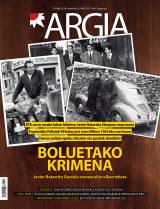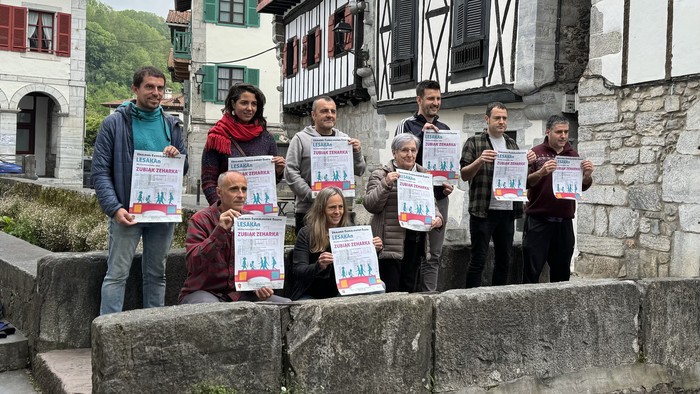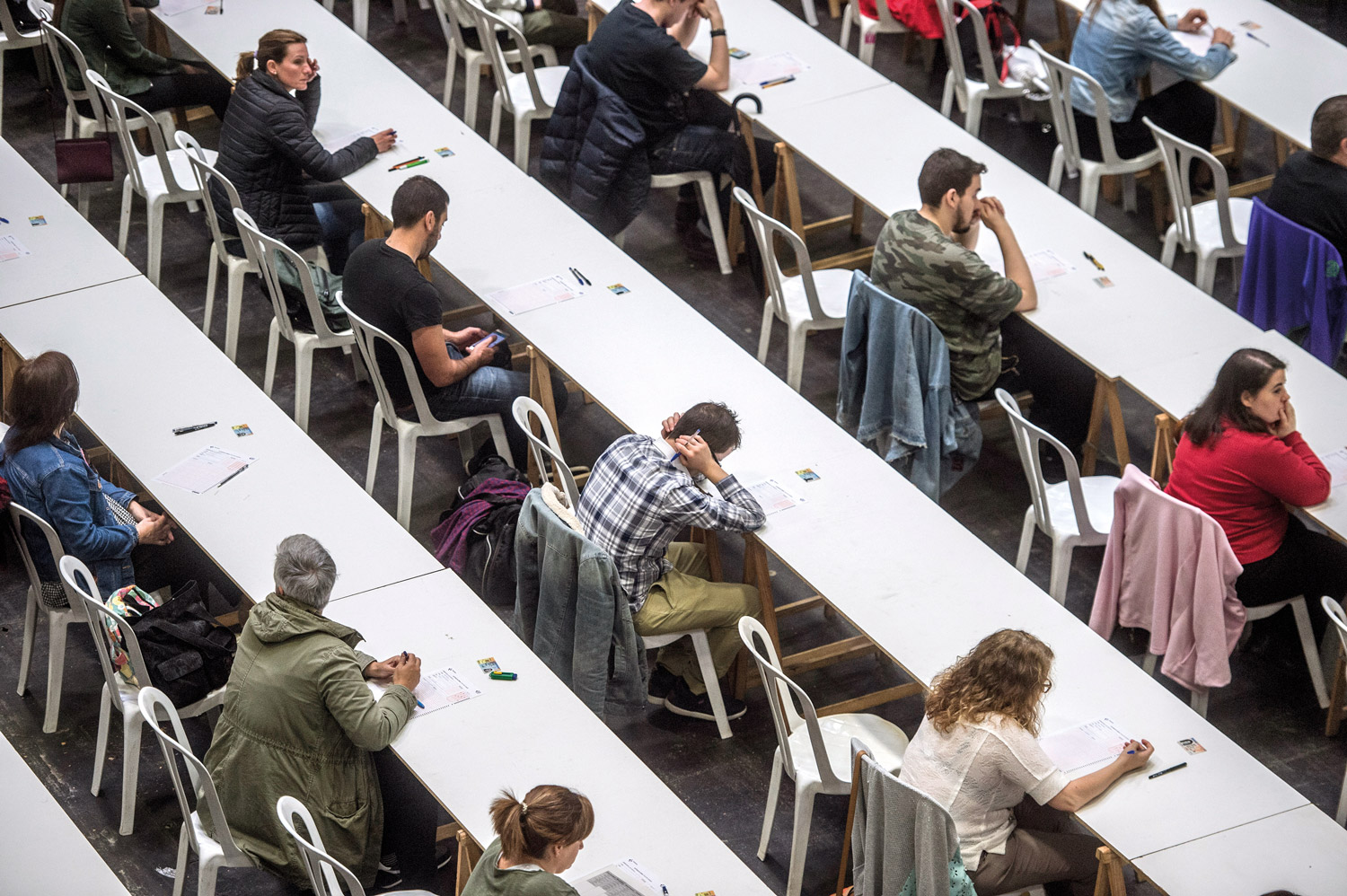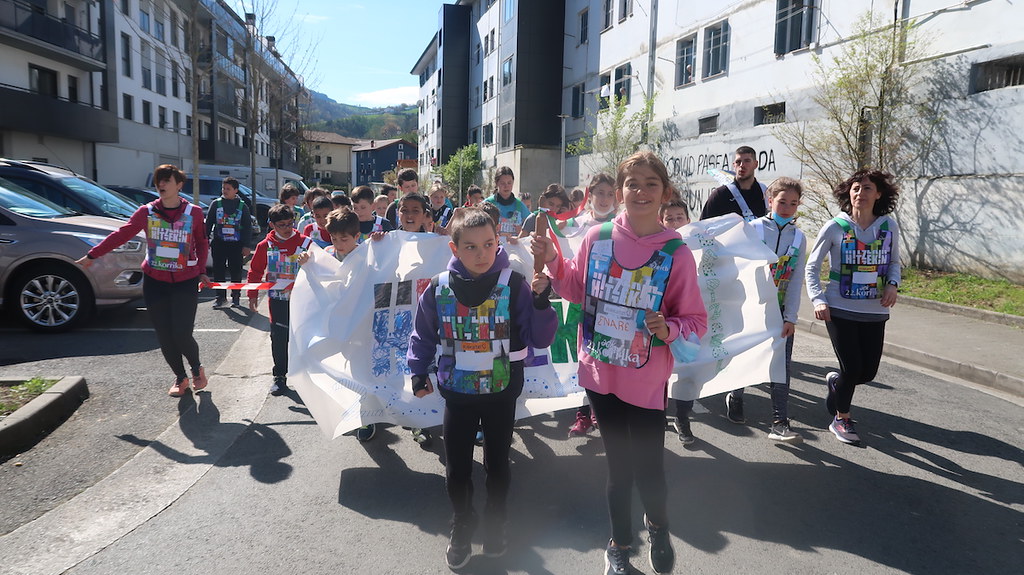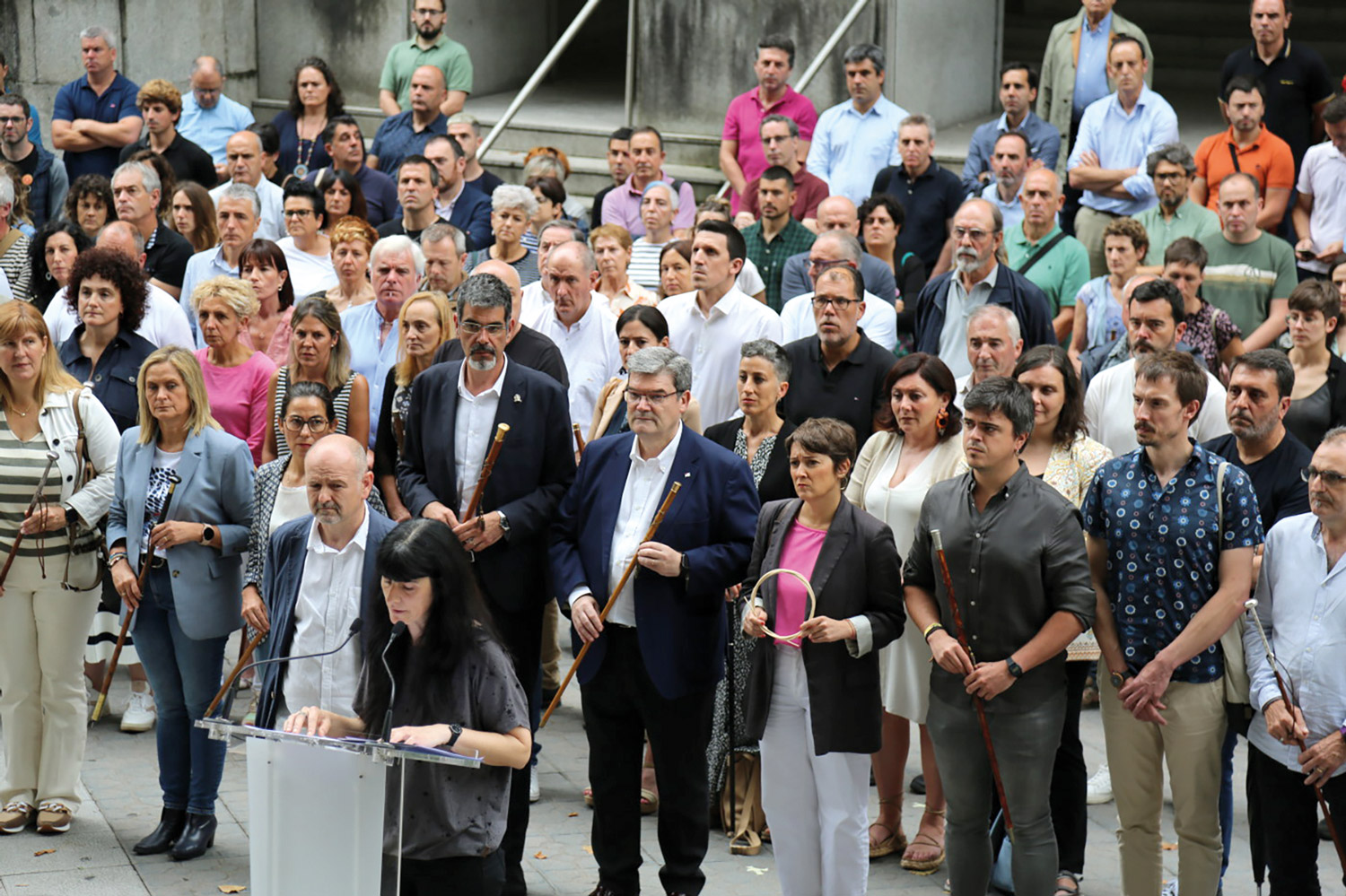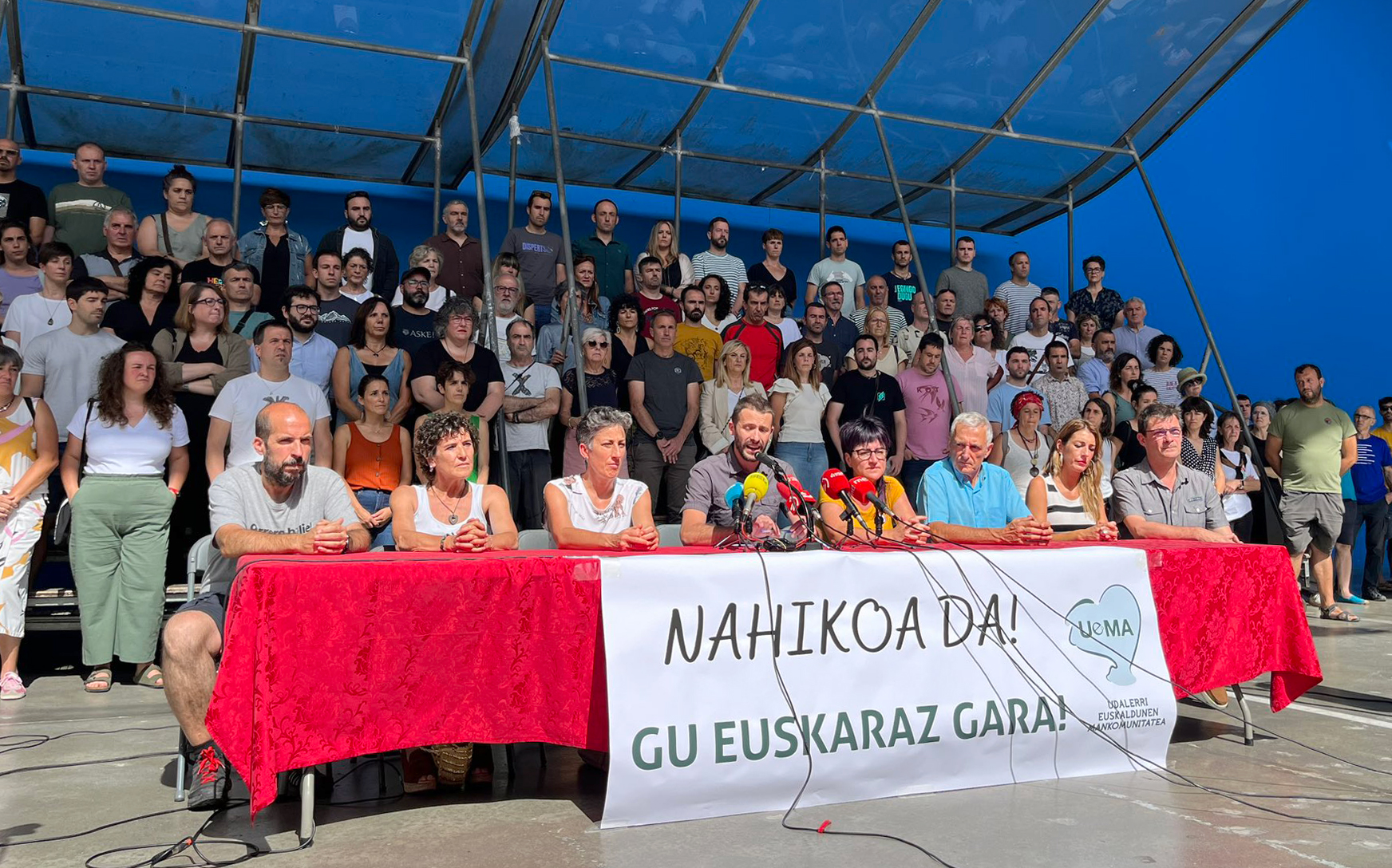They measured the fragility of the Basque Country before building it.
- “What are more houses going to be built in Errezil, and what? Fear of weakening Euskera? But we have always been Basque and we will continue to be so.” We have not heard that round phrase from Errezil, but it could be, because the mood is that new inhabitants will come but when the Basque community is not in danger. ARGIA spoke with the mayor of the village Xebero Agirretxe, with councilor Nekane Zinkunegi and with the language consultant Arritxu Zelaia. The urban plan and the Basque Country have been put in the same bag and the “light bulb” has been turned on. In Alegia the architect Inhar Agirrezabal has done the same, accompanied by a large team of work.
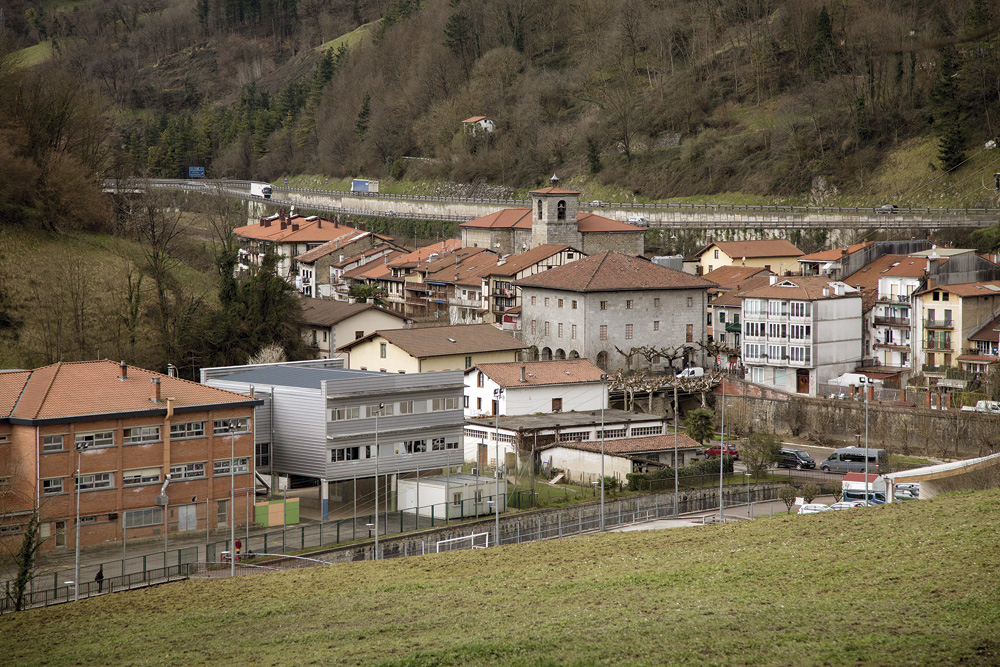
The Commonwealth of Basque Municipalities, UEMA, has been in charge of doing the sting work in Errezil. The UEMA technician learned that the PGOU (General Urban Management Plan) was being prepared and informed the Basque councillor and the mayor that it was the right time for the elaboration of the PGOU, i.e. the Linguistic Impact Assessment. They did not know the instrument to measure the linguistic impact that an urban plan can have on the people, but without thinking twice, they said yes.
No thought was given to the relationship between urbanism and Euskera. 89.33% of the curtains know Euskera and its use is 94.10%. Councilor Zinkunegi says: “We didn’t have that much concern, in this sense we live quite relaxed. We have been and will be Basques, we have thought that we do not need anything to guarantee it.” Mayor Agirretxe acted in parallel: “How to urbanize a street, make housing individually, en bloc, all together or in a section and the others... How can these issues influence the Basque Country? We didn’t believe that.”
The language consultant Zelaia has led the ELE of Orexa, Munitibar and Errezil and for the errezildarras it was key to hear that of Munitibar; 462 inhabitants and the intention to build homes for 200 more inhabitants.
We have told the interlocutors that in ten years (2001-2011) knowledge of the Basque country has decreased by 9.2% in Errezil. They have not given particular importance to the descent and have not realized that the descent coincides with the time when several dwellings were built.
Zinkunegi says that now they have started to see the issue with other anti-eyes, combining urbanism with the natural Basque: “This issue has put a chip on us. Tourists also come to Errezil and there we will have something to do. In the summer camps was the child of foreigners and we realized that the parents did not understand the notes they had sent home, as they were in Basque. Will we start sending bilingual notices? No, no. Our language is very healthy, but we have to be careful. We will respect the linguistic rights of whoever comes, but without violating our own.” The Councilman comments on empowerment, that is, that the people who have worked on linguistic awareness have more capacity to negotiate in these situations. Pulling that thread has come out of the endogamy. The language consultant has told him that if there is only one that does not know Euskera it is easier to fix, but if it comes to ten suddenly it is much more difficult. How to achieve balance. There are those who build houses for many people and do not know Basque, comedies that hold the language; at the same time, they want to live the people, avoid the void. “We don’t seem to want anyone coming from outside. That’s not the case, but we worry.”
Looking at the neighboring town
They do not intend to enter anyone's house, but they have inevitably put the example of the neighbouring people on the table. Bidania-Goiatz had 427 inhabitants in 2001 and 514 in 2016. New homes have been built and people have come from outside. At first, they were used more as sleeping homes. Today, citizen life is more intense. There are those who do not know Euskera. In the City Hall they have a councilor who does not know Euskera. They talk about sadness and they don't mean they don't want people from outside. They are of the opinion that linguistic awareness must be worked out in the people and that the urban plan must be drawn up with care. The new neighbours would like them to adapt to the language of the people and not the other way round.
And how did they take the outcome of the LAE?
The LAE points out that if all the housing planned in the urban plan were built (it is not usual to build them all) the linguistic impact would be moderate, that is, the decrease in the knowledge of the Basque Country would be 4%. The councillor is concerned about the figure: “Imagine the 4% drop in a village of 600 people! At the same time, the study notes that this is a moderate effect.” The language advisor has given reasons to walk cautiously and at the same time to relax. On the one hand, although the forecast of 4% is the worst hypothesis (all dwellings are built, all are filled and the expected number of Castilian speakers is reached), the percentage is not negligible, especially given that a decrease of 9.2% has previously occurred. On the other hand, in Errezil the Basque Country is very dense, has a protection system, the people are in UEMA, has a language plan. It has the means to halt the hypothetical decline. Other municipalities don't.
Also in Alegia
Alegia is a member of UEMA. The working group involved Mayor Unai Iraola, Basque councilor Mikel Artola, UEMA technician Goizane Arana and municipal architect Inhar Agirrezabal. The architect proposed to the City Hall the elaboration of the ELE and has done it. From the point of view of the Urban Plan of Alegia the realization of the ELE to the architect has become natural. The Plan contains an ecological, gender and social perspective, so the culture and language of the locality are fully present in the social perspective.
He perceives the political positions of the City Hall concerned about the situation of the language. However, in 2011, the knowledge of Euskera was 76.7%, as migrations have directly influenced knowledge. There's a lot of movement in the village. How would housing construction influence the linguistic and local environment? Four housing plan assumptions have been developed. The first three would have a moderate effect and the fourth serious effect.
Meeting houses in the antesala
Houses of free price, valued, of official protection... We've talked to architect Agirrezabal about the importance of it. However, he has put the spotlight elsewhere: “If we want to create social architecture and we want to promote the Basque country, we have to make houses where the neighbors and neighbors meet us. Do we design the eight-door lobby forever, or do we make a hallway that passes underneath all the windows? People have to meet, but yes, we have difficulties.” The architect means that the interior life has triumphed among us and that the creation of common spaces generates us reticence. They tell you that you have to create meeting points on the street. On the street, however, the population of origin is increasingly less present and the communities of Saharawi origin, for example, are more easily collected. Those don't speak Basque.
- 600 biztanle, atzerritarrak 35.
- Euskara ezagutza: %89,33*
- Erabilera: %94,1**
- Aurreikusitako etxebizitza kopurua: 35, oraingoaren %11ko igoera.
- Proiekzio indizea: %4 jaitsiko litzateke euskara ezagutza.
*Eustat **Soziolinguistika Klusterra
- 1.756 biztanle, atzerritarrak 194.
- Euskara ezagutza: %76,74*
- Erabilera: %77,60**
- Aurreikusitako etxebizitza kopurua: hipotesi txikiena (134 etxebizitza berri) eta hipotesi handiena (85 etxebizitza huts bete eta 161 berri egin).
- Euskararen proiekzio indizea: hipotesi txikienean %4,09ko jaitsiera eta handienean %6,51koa.
*Eustat **Soziolinguistika Klusterra
"Zubiak zeharka” lemapean, egun osoko egitaraua prestatu dute UEMA eguna ospatzeko. Herriko eragile guztiek hartu dute parte programaren prestaketan eta ekimen herrikoi eta partehartzailea izatea lortu dute horrela.









